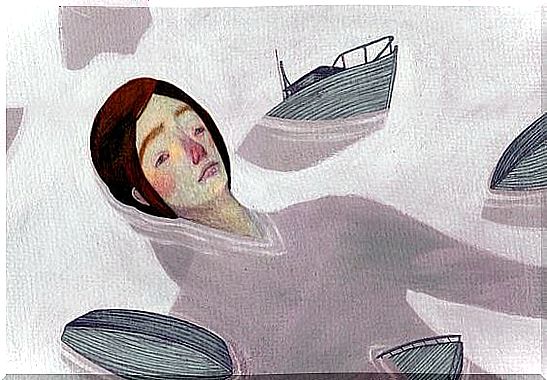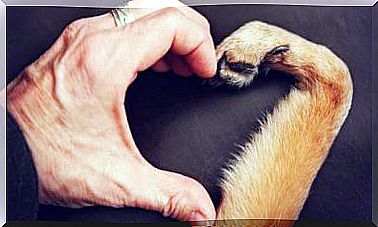The Slaves Of Shame

We are not slaves to shame . What happens then when, for example, someone stands in front of an audience and trembles? Do you feel that what you have to say is so worthless that it is almost an offense to speak to others? Or do you think yourself so inferior that you take the mere fact of exposing yourself in public as an affront to the general opinion?
The same questions appear when someone hides from the gaze of others in different situations. Those who do not want to be noticed or seen, not because of a personal preference, but because of the idea of feeling humiliated when someone looks at them, notices their presence or notices their actions.
Those who are slaves of shame have a feeling of fear because of the risk that an inadequacy or insufficiency, real or imagined, will become visible. In Lanski’s words, the ashamed experiences “the awareness that oneself is dirty, inadequate, needy, empty, dependent, angry, disappointing, shy, socially fearful or inept, prone to humiliation, etc.” In short, it is embarrassing for the ashamed to be who they are or who they think they are.

Morrison defines shame as “the affect that reflects the feeling of failure or deficit of the self. ” To this definition it should be added that this feeling of deficit is established by comparison with the others. It is deficient, depending on what others are. Therefore, shame is also at the base of other feelings and passions, such as envy and resentment.
The effects of shame on life
People in whom the feeling of shame is very strong are extremely sensitive to the opinion of others and are easily hurt. They tend to take any attitude of other people as personal. For example, if someone is late, they will not believe that the traffic was especially congested. Rather, they are going to think that it was a voluntary rebuff that was delayed.

The easiest thing would be to dismiss the issue by saying that they are simply paranoid people or that they remain tied to their traumas. However, the matter is not so simple as to get rid of it by putting a label. Who is ashamed suffers a lot. So much so that on many occasions this suffering and shame take over his life and block his growth and evolution.
For this reason, many slaves of shame do not dare to ask, or to demand, what is rightfully theirs. This becomes more visible in front of the figures that represent some type of authority. Only someone with a certain level of pride, or well-grounded narcissism, is capable of being assertive in front of a judge, a policeman, a teacher, a doctor, an employer, etc.
For this reason, those who are part of the slaves of shame are often subjected to abusive behaviors, which ultimately end up increasing their perception of being unworthy. Abuses such as that others do not take him into account or that they always leave him last in the plans or that they easily raise their voices or refer to him disparagingly. Usually this does not happen consciously. It just happens and that’s it.
The labyrinths of shame
There is a shame that could be classified as “constitutive”, insofar as it is present in a person from the early stages of his life. There is another that relates to a specific episode of humiliation or contempt. The former silently seeps into the mind and emotions, remaining as a backdrop in life. The second encourages reactions, often excessive.

A mother or father who is ashamed of themselves is almost always ashamed of their children, who are the extension of their being. That is why they instill shame as a central element in parenting. They have no problem ridiculing them in front of other people. Nor do they find it negative to ignore them and accuse them of “spoiled” if they demand attention. Sometimes they are also subjected to unconscionable punishments, precisely with the intention of breaking their sense of dignity.
Episodic shame, on the other hand, is usually the beginning of feelings of revenge and / or a visceral resentment. Often these resentments and revenges become a deaf echo and end up becoming tyranny with oneself and with others. You despise yourself for not having reacted and, at the same time, you hate not only the person who caused the humiliation, but everything that represents him. That resentment operates like a ballast, that does not allow to live.

Whatever the case, the truth is that feelings of shame are also a responsibility that must be assumed. Others may well do whatever they want, but it is up to oneself to work to overcome those feelings of inadequacy or to accept that we are really inadequate for something and that we do not have to beat ourselves up for that. Ultimately, each one is responsible for the value they place on themselves.
Let’s not be slaves to shame.








